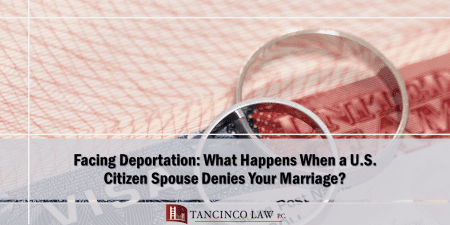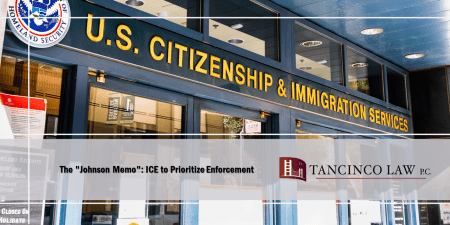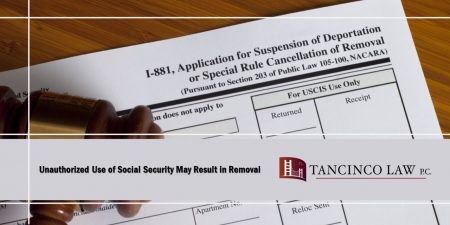For marriages of less than 2 years involving a U.S. citizen and a non-citizen, the initial green card is issued with a two-year conditional period. Before these two years expire, the non-citizen spouse must file to remove these conditions to obtain a green card with a ten-year validity period. But what happens if the U.S. citizen spouse becomes uncooperative, despite the couple still living together? Worse, what if the USCIS denies the joint petition for removal of conditions, putting the non-citizen spouse at risk of deportation? Let’s delve into the case of Maria and John
Maria and John’s Story
Maria, a young college graduate, met John, a U.S. citizen, while working as a guest relations officer at a popular beach resort in the Philippines. Their relationship blossomed, leading John to file a fiancé visa for Maria upon his return to the United States. The visa petition was approved, and Maria traveled to the U.S. to be with John.
During her initial stay, Maria noticed alarming changes in John, who was 20 years her senior. He became increasingly forgetful, his behavior erratic, and his mood swings frequent. Despite these challenges, Maria remained a patient and loving wife. However, they lacked sufficient proof of marriage—no photos together, no joint documents, as they lived with John’s family and didn’t pay rent.
When USCIS called them for an interview to remove the conditions on Maria’s residency, they were interviewed separately. The immigration officer concluded that Maria had entered into a fraudulent marriage, denying the petition. Maria was shocked. Upon reviewing the USCIS decision mailed to her, she realized John had made inconsistent statements during the interview, including an admission that the marriage was solely for Maria to obtain a green card. Maria suspected John’s worsening memory lapses had caused him to forget critical details of their relationship.
Now facing deportation for alleged marriage fraud, what legal steps can Maria take?
Maria’s Deportation Proceedings
When a non-U.S. citizen faces removal due to a denied petition for removal of conditions, the burden of proof lies with USCIS to establish grounds for terminating the conditional resident status. For her defense, the applicant can present new, material, and relevant evidence that was not previously submitted during USCIS proceedings.
Given the lack of joint documents and photographs, Maria must provide testimonial evidence from individuals who can attest to the authenticity of their marriage. Financial and property arrangements vary among couples, and some may have better documentation than others. In Maria’s case, her joint tax returns were her only significant documents. She was advised to gather witnesses who could detail their marital relationship.
Importantly, Maria did not have the opportunity to present this evidence during the USCIS interview. Immigration court provides the ideal forum to present additional evidence to prove her marriage was entered into in good faith.
Besides testimonial evidence, Maria can demonstrate that John has been clinically diagnosed with dementia, explaining his inconsistent answers during the USCIS interview. This crucial evidence could have significantly impacted her case.
With the submission of testimonial evidence and John’s medical records, Maria successfully proved her case in court and retained her green card.
Options for Others in Similar Situations
For those not as fortunate as Maria, an immigration judge, with the assistance of legal counsel, may accept an INA Section 237(a)(1)(H) waiver if the charge for terminating conditional residency relates to marriage fraud.
This case highlights the importance of gathering substantial evidence and leveraging all available legal avenues to demonstrate the legitimacy of a marital relationship, even under challenging circumstances.




